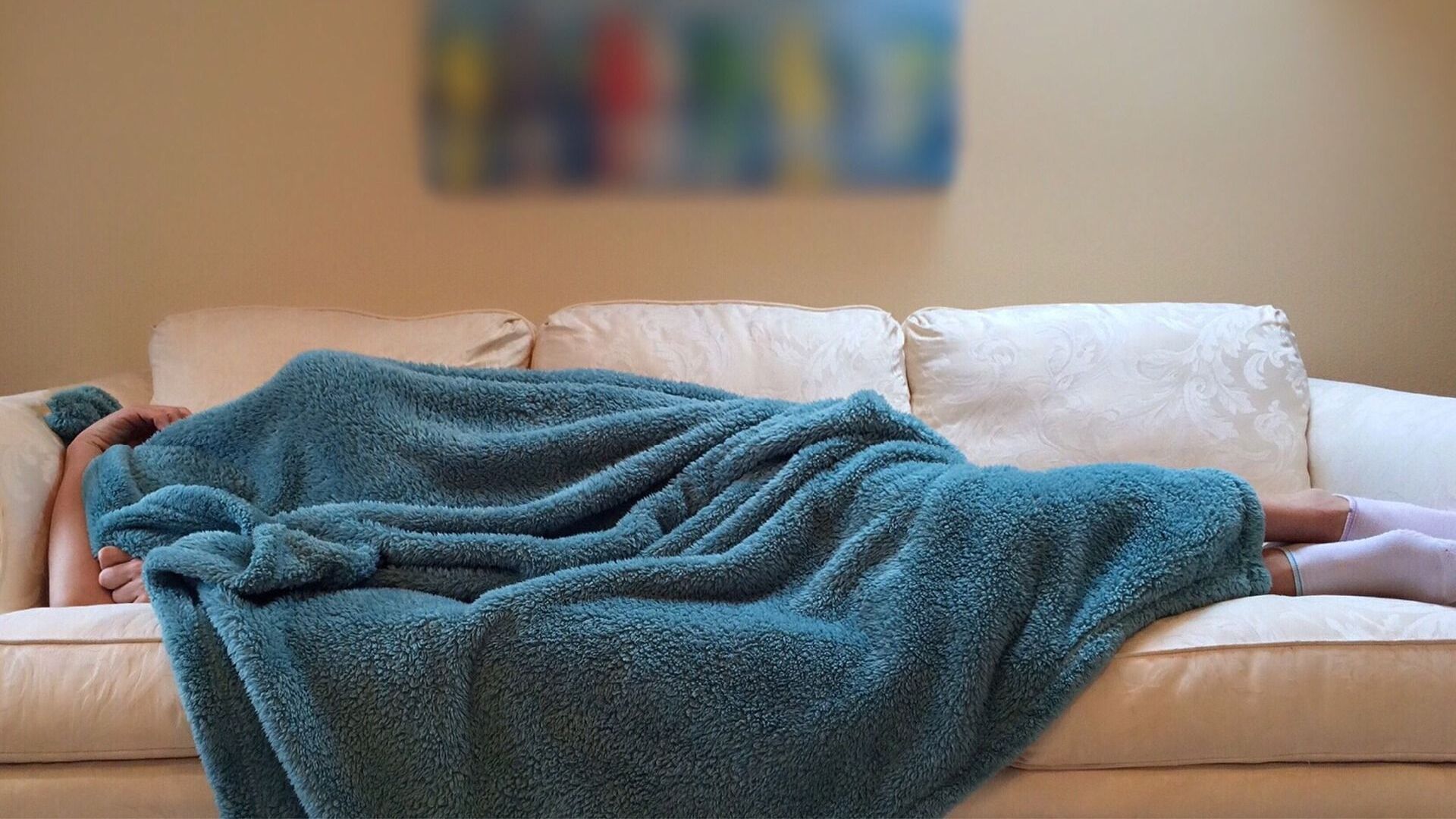https://sputnikglobe.com/20220523/study-dream-enactment-behavior-spiked-fourfold-during-covid-19-pandemic-1095706297.html
Study: Dream-Enactment Behavior Spiked Fourfold During COVID-19 Pandemic
Study: Dream-Enactment Behavior Spiked Fourfold During COVID-19 Pandemic
Sputnik International
Dream-enactment behavior is a phenomena in which an individual will physically act out vivid, unpleasant dreams with vocal sounds and unexpected, oftentimes... 23.05.2022, Sputnik International
2022-05-23T00:07+0000
2022-05-23T00:07+0000
2022-05-23T00:06+0000
sleep
covid-19
study
https://cdn1.img.sputnikglobe.com/img/07e5/05/08/1082835040_0:195:1920:1275_1920x0_80_0_0_6ac1031b22040f77608e89f8ecd673f4.jpg
A group of researchers recently detected a two to fourfold increase in the pervasiveness of dream-enactment behavior - or rapid eye movement sleep behavior disorder (RBD) - during the COVID-19 pandemic.Researchers of the study underlined that long-term consequences of COVID-19 can lead to neuropsychiatric symptoms/disorders in COVID-19 patients.While the muscles are supposed to be paralyzed during REM sleep, a person with RBD will lack the muscle paralysis needed to get a good night’s sleep and actually re-enact whatever they’re dreaming about.Official made their findings after examining data from the International COVID-19 Sleep Study (ICOSS), which was conducted during the pandemic between May and August of 2020. The online survey compiled data from 15 different countries across the globe and asked survey takers if they had experienced RBD during the pandemic. Approximately 26,539 individuals participated in the survey.Researchers found that RBD was more common during the pandemic in the global population, and was also found to be commonly associated with those experiencing olfactory impairment, mood, post-traumatic stress disorder, and obstructive sleep apnea symptoms. Those who were diagnosed with COVID-19 were two to three times more likely to experience RBD or dream enactment behavior (DEB).Adam Zeman, a professor and expert in sleep disorders at the University of Exeter, explained there may be other contributing factors linked to COVID-19 and DEB, such as the stress, anxiety, and breathing issues. Additionally, Liu admitted their findings are just a peek at the link between the pandemic and RBD.The team's findings were published in the Journal of Sleep Research.
Sputnik International
feedback@sputniknews.com
+74956456601
MIA „Rosiya Segodnya“
2022
Mary Manley
https://cdn1.img.sputnikglobe.com/img/07e6/01/0b/1092187887_0:0:2048:2049_100x100_80_0_0_0c2cc4c84f89aff034cc55bb01fb6697.jpg
Mary Manley
https://cdn1.img.sputnikglobe.com/img/07e6/01/0b/1092187887_0:0:2048:2049_100x100_80_0_0_0c2cc4c84f89aff034cc55bb01fb6697.jpg
News
en_EN
Sputnik International
feedback@sputniknews.com
+74956456601
MIA „Rosiya Segodnya“
Sputnik International
feedback@sputniknews.com
+74956456601
MIA „Rosiya Segodnya“
Mary Manley
https://cdn1.img.sputnikglobe.com/img/07e6/01/0b/1092187887_0:0:2048:2049_100x100_80_0_0_0c2cc4c84f89aff034cc55bb01fb6697.jpg
sleep, covid-19, study
Study: Dream-Enactment Behavior Spiked Fourfold During COVID-19 Pandemic
Dream-enactment behavior is a phenomena in which an individual will physically act out vivid, unpleasant dreams with vocal sounds and unexpected, oftentimes violent movements of the limbs during rapid eye movement (REM) sleep, which is the deepest stage of a person’s sleep.
A group of researchers recently detected a two to fourfold increase in the pervasiveness of dream-enactment behavior - or rapid eye movement sleep behavior disorder (RBD) - during the COVID-19 pandemic.
Researchers of the study underlined that long-term consequences of COVID-19 can lead to neuropsychiatric symptoms/disorders in COVID-19 patients.
While the muscles are supposed to be paralyzed during REM sleep, a person with RBD will lack the muscle paralysis needed to get a good night’s sleep and actually re-enact whatever they’re dreaming about.
“They may punch or flail their arms in the air, make running movements, or even jump out of bed, sometimes resulting in injuries to themselves or their partner,” said lead author Prof Yaping Liu at the Chinese University of Hong Kong.
Official made their findings after examining data from the International COVID-19 Sleep Study (ICOSS), which was conducted during the pandemic between May and August of 2020. The online survey compiled data from 15 different countries across the globe and asked survey takers if they had experienced RBD during the pandemic. Approximately 26,539 individuals participated in the survey.
“We found that the prevalence of dream-enactment behavior was two to four times higher than previous studies that have been conducted in the general population during non-pandemic times,” said Liu. “Moreover, in those subjects who reported a Covid-19 diagnosis, it was two or three times higher, compared with subjects without infection.”
Researchers found that RBD was more common during the pandemic in the global population, and was also found to be commonly associated with those experiencing olfactory impairment, mood, post-traumatic stress disorder, and obstructive sleep apnea symptoms. Those who were diagnosed with COVID-19 were two to three times more likely to experience RBD or dream enactment behavior (DEB).
Adam
Zeman, a professor and expert in sleep disorders at the University of Exeter, explained there may be other contributing factors linked to COVID-19 and DEB, such as the stress, anxiety, and breathing issues. Additionally, Liu admitted their findings are just a peek at the link between the pandemic and RBD.
"Dream-enactment behaviors can also occur as a result of other sleep disorders such as sleep apnea, and have also been reported by people with post-traumatic stress disorder, or who are experiencing nightmares,” Liu said. “They may be intermittent and fade away if other problems, such as nightmares, PTSD, stress, and negative emotions are improved.”
The team's findings were
published in the Journal of Sleep Research.




